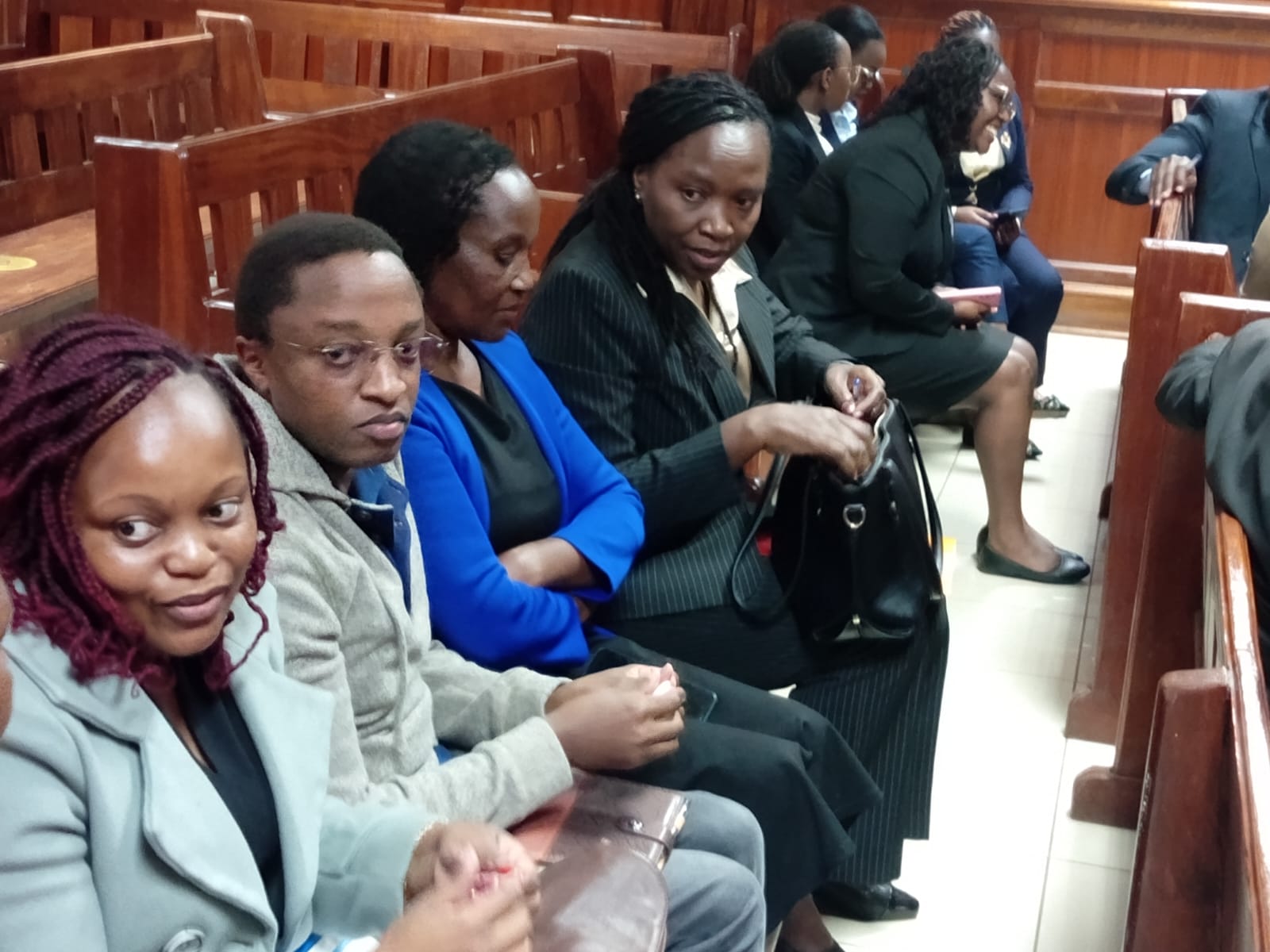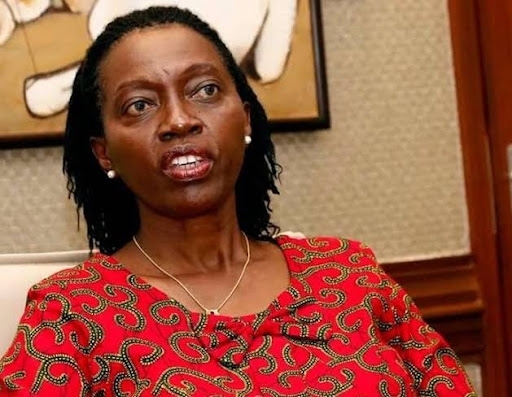
Ndiangui Kinyagia: Who is he?
Was reported missing on June 21, resurfaced on July 3
Fearing abduction, torture, or even death, scenarios which he said have befallen other victims in similar situations, he told the court he decided to remain in hiding.
In Summary

Audio By Vocalize
 Ndiang'ui Kinyagia (in glasses), accompanied by his family in Milimani High Court, on August 16, 2025/JAMES GICHIGI
Ndiang'ui Kinyagia (in glasses), accompanied by his family in Milimani High Court, on August 16, 2025/JAMES GICHIGIThe High Court in Nairobi has declined to grant anticipatory orders to Ndiang’ui Kinyagia, a petitioner who resurfaced after weeks in hiding, even as it directed police to return his property seized during a search operation.
Delivering his ruling on Tuesday, September 16, 2025, Justice Chacha Mwita noted that the habeas corpus petition initially filed to compel the State to produce the petitioner had been overtaken by events.
Ndiang’ui, who had been reported missing, has since
presented himself before the authorities, recorded a statement, and is
cooperating with investigators. The court therefore marked the case as
withdrawn.
The matter had begun with claims that Ndiang’ui had disappeared under unclear circumstances.
Through Senior Counsel Martha Karua, he later explained that he had chosen to go into hiding after his residence was raided by police without notice.
In an affidavit dated
August 5, he told the court that the locks to his home were changed during the
raid and that he feared abduction, torture, or even death, citing past
incidents in which other individuals in similar circumstances had suffered such
outcomes.
Karua told the court that Ndiang’ui’s absence had left his family in distress.
She narrated that his mother, alarmed by his sudden disappearance, had approached the Law Society of Kenya (LSK) seeking urgent intervention.
According to Karua, the mother was
“mentally broken” by the situation and acted in desperation, as any parent
would, prompting the filing of the habeas corpus petition.
The affidavit further explained that
Ndiang’ui had deliberately left his phone behind when he went into hiding,
aware that mobile devices are often used to track individuals.
He maintained that he did not know
about the court petition until he re-established contact with a relative. Karua
argued that her client had not misled the LSK, but had acted out of genuine
fear for his safety.
During the hearing, counsel for the
Directorate of Criminal Investigations (DCI) confirmed that Ndiang’ui had since
appeared before the police and provided a statement.
They argued that the habeas corpus
petition had therefore served its purpose and should be marked as spent.
However, they strongly opposed the
request for anticipatory bail, insisting that granting such an order would
amount to shielding an individual from lawful arrest or investigation.
The lawyers representing the
respondents maintained that police must be allowed to carry out their
constitutional mandate without interference from the courts.
In a rejoinder, Karua asked the
court to protect her client from harassment and pressed for the return of
property and gadgets seized during the raid.
She argued that police had not
obtained court authorisation to keep the items for two months after they were
taken. She also hinted that her client might file a separate civil suit for
damages arising from the incident.
The Law Society of Kenya formally
withdrew from acting for Ndiang’ui once he resurfaced, stating that he was now
in a position to appoint his own lawyers for any follow-up claims.
In his ruling, Justice Mwita
balanced the submissions of all parties.
He observed that since the petitioner was
alive and cooperating with investigators, the habeas corpus application had
lost its basis.
He ordered police to return the
seized property once investigations were complete, but declined to grant
anticipatory bail.
He emphasised that while courts have a duty to
protect citizens, they cannot prevent investigative agencies from exercising
their lawful authority.
The judge nonetheless reminded
authorities that all actions must conform to constitutional principles of human
rights and accountability.
He warned that any future threats or
violations against Ndiang’ui could be addressed in fresh proceedings if they
arose.
The ruling effectively closed the
petition but left open the possibility of further legal battles, particularly
if the petitioner proceeds with a separate suit for damages.

Was reported missing on June 21, resurfaced on July 3

“This is not even funny, the matter is subjudice"